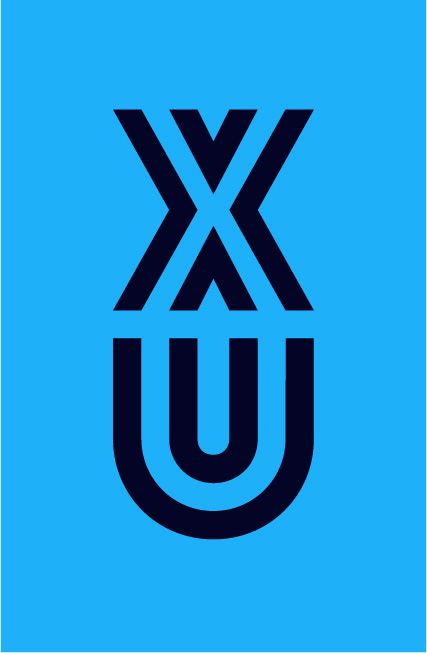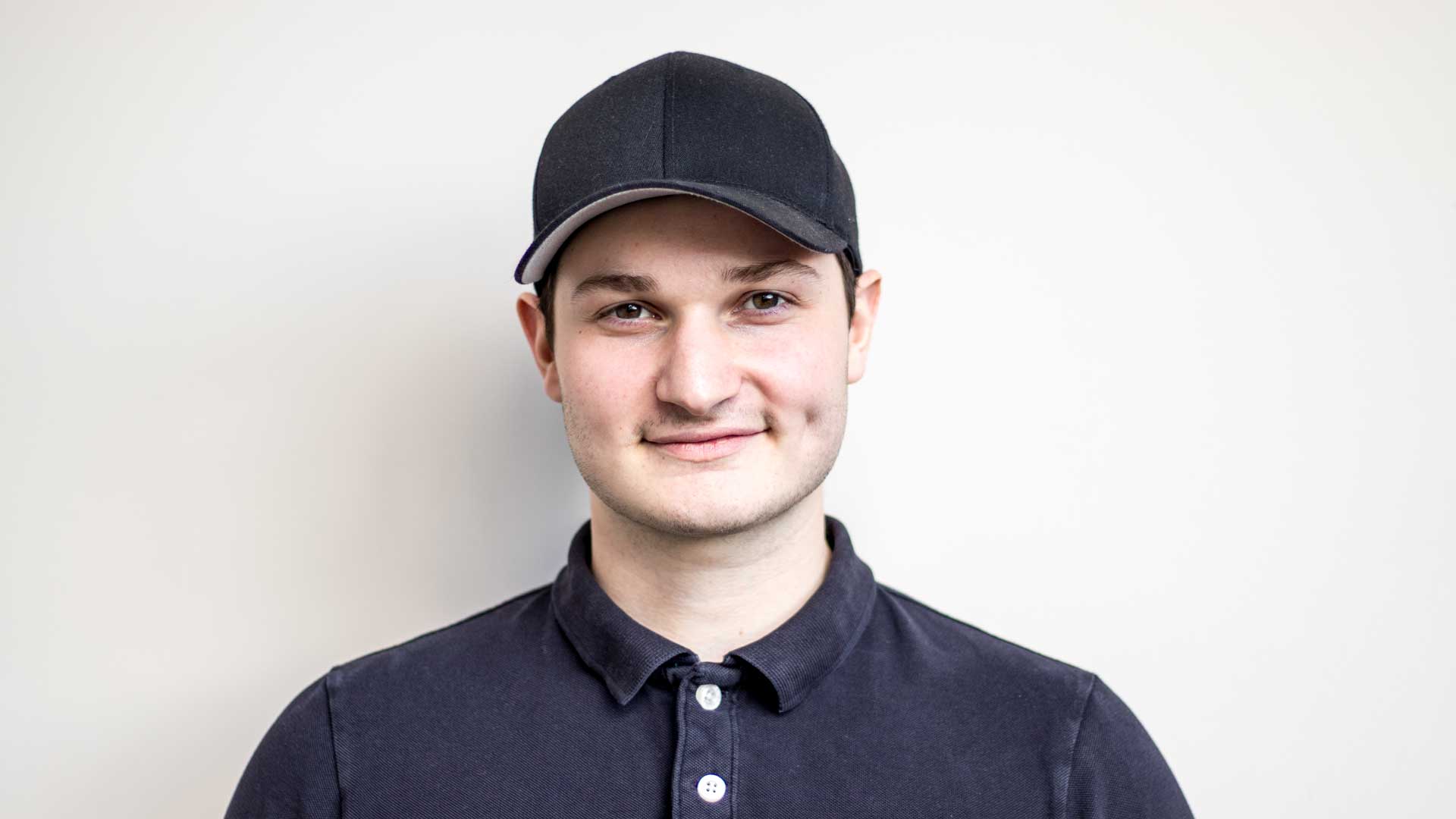Do you enjoy maths and are you always up to speed when it comes to new technologies, devices and apps? Maybe you have already thought about studying computer science because you can imagine doing something with computers in the future. In this blog article we want to talk about what a computer science degree actually involves, what you should do with it and what you can do with it afterwards.
At XU Exponential University, we also breathe technology, but we do not offer computer science studies. Wait a minute, let’s repeat that again. Yes exactly, there is no computer science degree program at XU Exponential University. Because we approach things a little differently! Our students learn how to program, learn how to turn market insights into products and services and how to make use of the tools to lead a team to its goal as a Scrum Master, using Kanban, or agile methodologies – but it is not a computer science degree program.
At our adesso School of Coding and Software Engineering we train the coders of the future. Our bachelor course combines the learning of different programming languages with methods of agile project development so that our students are able to quickly put their theoretical knowledge into practice. After only three semesters you can call yourself Junior Developer and start your own coding projects. Because we believe that you learn best when you try it out and do it yourself. Thanks to our partner adesso SE our practical projects always remain market-relevant and have a direct connection to the economy.
What does a degree in computer science include?
But back to the origin. What is a computer science study course actually? Going back to the definition also makes it easier to understand what the difference to our Bachelor’s degree at the adesso School of Coding and Software Engineering is. And of course, which of the two study options could be interesting for you.

The teaching of computer science originally derived from mathematics and electrical engineering and deals with information technology (hence the abbreviation IT) and its fields of application, the automatic processing of information by computers. In general, one can divide the study of computer science into four broad elements:
- Theoretical computer science: Here the basics of logic, algorithms and mathematics are laid.
- Technical computer science: Here the focus is on hardware and the actual machine needed for calculating.
- Applied computer science: This part is about databases and data processing.
- Practical computer science: This is where programming languages and operating systems come into play.
In the first semesters, students primarily acquire basic knowledge in the areas of theoretical, technical and applied computer science and deepen their knowledge of mathematics and logic. In the advanced semesters, students can choose to specialize or even chose a combination of two disciplines such as media informatics, bioinformatics or business informatics.
What are the requirements for studying computer science?
Depending on the university and the type of university, the requirements for studying computer science will vary, so we will try to generalize: In the first semesters, where the focus is mainly on theoretical computer science, the study is very similar to a degree in mathematics. Hence, topics such as analysis, linear algebra and stochastics are covered – so as basic requirements, you should have fun, interest and curiosity in mathematical matters.
At some universities, places in Computer Science are allocated according to High School grades and the course may even be admission restricted at some universities. It’s best to find out about the last Numerus Clausus (NC) at your chosen university to get a first impression. Besides having fun doing maths we think you should also have fun with English – often language skills are not a formal requirement to start studying but you will see that a lot of current information in the IT area is available in English. Logical thinking, analytical skills and the ability to think abstractly are certainly also an advantage to get off to a successful start in IT.
What kind of computer science courses are there?
Of course, not all computer science is the same, you probably already knew that. Let’s take a look at the different courses of study and the main subjects within computer science to understand how they differ.
The basics are usually all the same, but after the first semesters it is often possible to specialize on a certain area. Depending on the university there are different combinations to choose from, for example business informatics, environmental robotics or bioinformatics. In the case of our bachelor’s program in Coding and Software Engineering, we want to concentrate entirely on software development and have therefore not diversified our specialization courses quite that far. Instead, these specializations are based on reality in the economy and how teams are put together to create digital innovations. So after the first semesters of your bachelor’s degree, you have the choice of the following subjects:
- Senior Web Development
- Senior App Development
- Usability Engineering
- Artificial Intelligence
- Data Warehouse
- Mobile Management and Techniques
- Digital Management and Consulting
- Business Management
In our course of studies it is important for us to prepare our students as much as possible to develop projects independently or to find a point of entry into already existing teams, therefore we include many practical contents such as methods of project management into our teaching.
What’s after university? Professions for computer scientists
A study in computer science is certainly a very good choice at the moment if you want to be able to start your career later. With a good degree you can be relatively sure to find a well paid and secure job later on. For a long time now the IT sector has been one of the industries with the strongest growth.
With a degree in computer science, you have a good basis for entering various professions and acquiring practical knowledge. At XU Exponential University, we approach things a little differently: Our students start with the idea of putting their knowledge into practice right from the first semester and are able to develop, design, and program their own apps at an early stage. The professions of a computer scientist are broadly diversified and the tasks range from the conception to the implementation and maintenance of automated processes or programs. Professions in systems analysis, IT project planning, software engineering, quality management or even IT sales are conceivable.
What’s for you? Computer science or coding?
This is probably the most difficult of all questions in this blog article. And it is a question that only you can answer best. But of course, we won’t leave you alone with this question and we’ll be at your side ‘virtually’. Under this link, you can register for our student advisory sessions, webinars and Open Campus tours, which take place weekly.
- Student advisory sessions: In a group or individually we sit down and talk about your future.
- Webinars: Depending on the focus, we bring together lecturers or external professionals to discuss a topic in detail.
- Open Campus: Get to know our campus in Potsdam and learn more about student life at XU Exponential University.
Ultimately, the decision between a theoretical computer science course and an application-oriented coding course is a very personal choice. Do you see yourself working more in theory and before you get started, do you want to have all logical and historical connections clear? Then a computer science degree course should suit you. If you prefer to learn by trial and error, and can imagine yourself as a coder later on in your career quickly managing your own projects or founding your own startup-up company, then a Coding degree might be more suitable for you, since it not only provides practical coding skills, but also a lot of tools that will help you implement your ideas.







